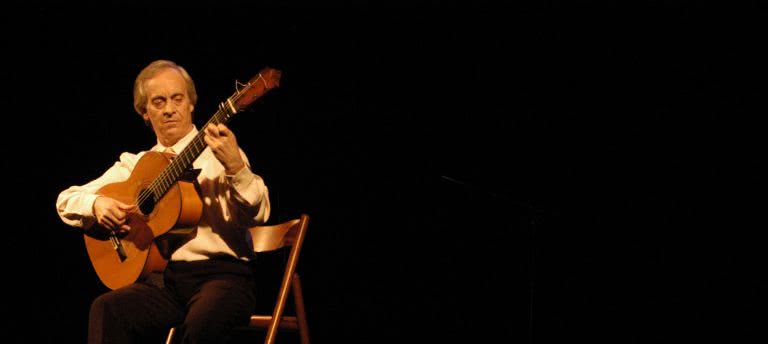Legendary guitarist Paco Pena grew up in the Andalusian region of southern Spain, where flamenco culture runs through the blood of the people and the soil of the land. Ahead of his Australian visit, he talks us through the three aspects of flamenco: thecante(song), the guitar and the dance.
How did you get your musical beginnings?
From the community – the guitar was a very popular instrument all around, even in my family; my brother had one and he taught me a few things when I was six years old.
Flamenco is so important to the Spanish people – why? Is it the spirit of dance, or the weather, or something more?
All of that, but flamenco tells a very important history of the Andalusian people; a history full of deep emotions, upheavals, suffering and a great deal of happiness as well. Flamenco deals with all those things.
It’s often said one needs to practise for 10,000 hours to become an expert in any field. You must have played guitar for many more hours than that by now – but are you still learning?
Learning is something you are always doing. I hope I am still in the process of getting some wisdom about music, the guitar, life…
You must be asked a lot for advice from young guitar players. What do you tell them?
Take very seriously the heritage from your traditions, and then try and say something of yourself. Always from a standpoint of working very hard at the instrument and at listening to the art in general. The singing is fundamental in flamenco and it teaches you to play!
You experienced the height of London’s booming musical culture when you moved there in the 1960s. What was it like?
It was a great place and a real discovery. There was huge interest in the guitar in general and in the Spanish guitar too. Flamenco was not so well known but I also found interest in people who wanted to hear what I had to say. It was a wonderful time to be in London.
What should Australian audiences expect from the Paco PeЦa Dance Company and Flamencura?
I am bringing a brand new show I have just put together. Whatever show I present, I always hope that I can move people, that they feel something. That is because I don’t ever pretend to be anything I am not, [and] equally with my presentations. The show looks at essential ingredients that give flamenco its unique character. I hope the audience can get some ofthose feelings.
Flamencurais at theState Theatre onFriday April 4.

































